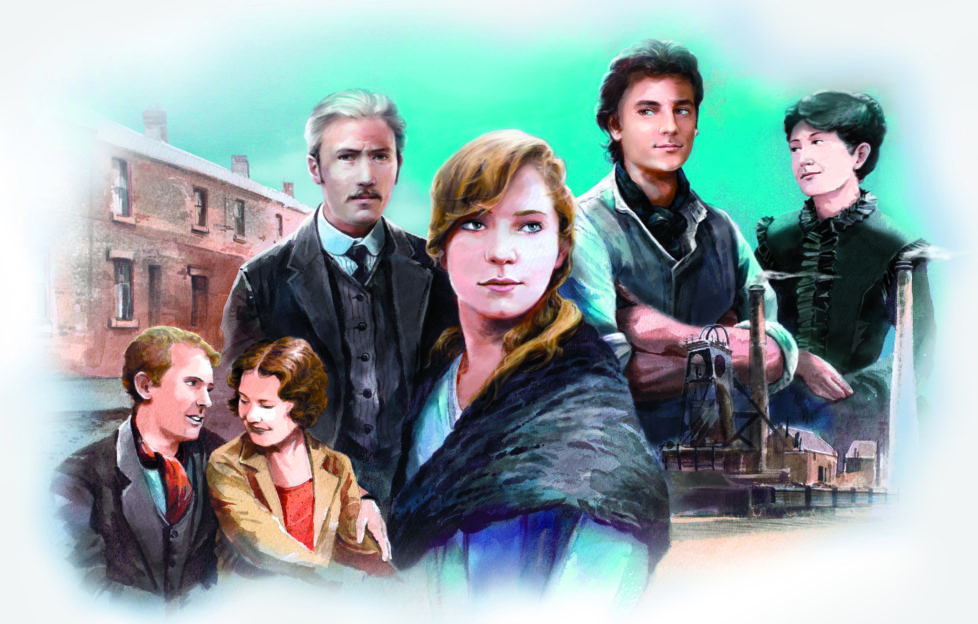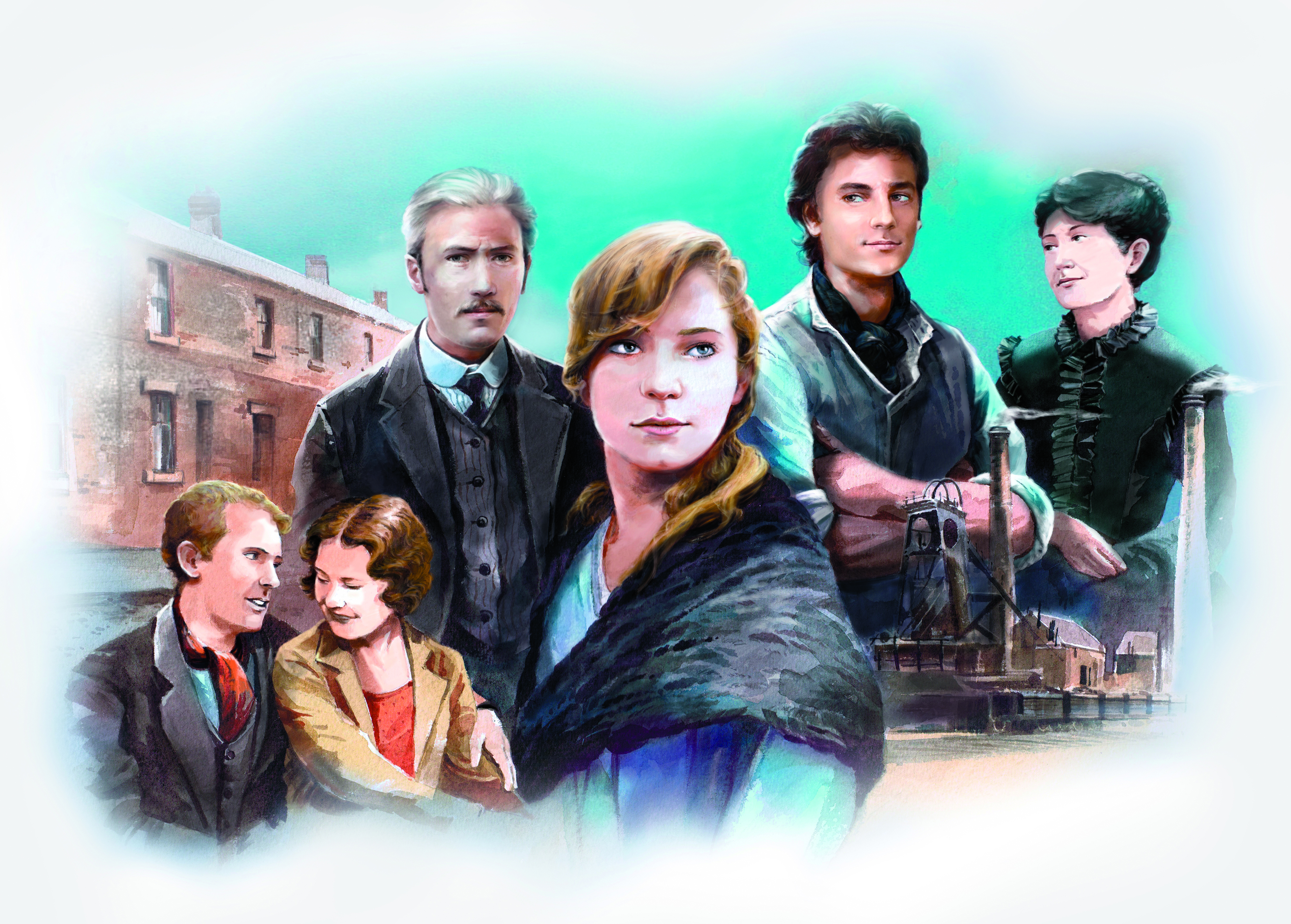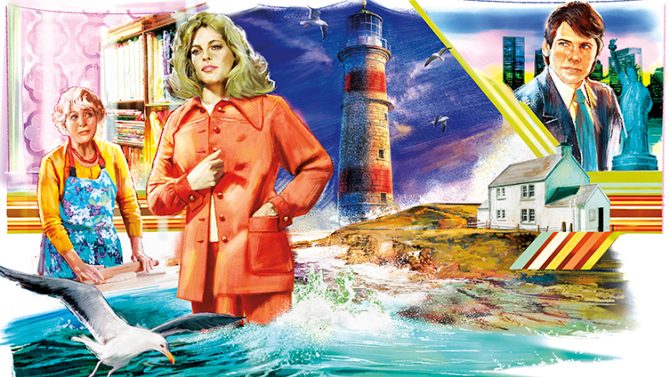The Life We Choose – Episode 30

The Life We Choose by Neilla Martin
« Previous Post- 1. The Life We Choose – Episode 01
- 1. The Life We Choose – Episode 30
The colonel’s sister, Bunty Grant, was restless. It was barely an hour since she’d had breakfast and already the day was bearing down on her like a leaden weight.
It had all started so well, she reflected. A fine morning, chilly but bright, had tempted her outside to take Thor and Vulcan for a bracing long walk, only to be caught in a squall on the way back and soaked. Then she’d been greeted by the disgruntled housekeeper, Mrs Goudie, banging serving dishes down on the dining-room table and agitating about getting a girl in to help her with what she called “the rough work”.
Mrs Goudie had then embarked on a theatrical display of cleaning the mud spatters left by Bunty’s boots on the hall floor and by Thor and Vulcan rubbing against the walls.
“It’s this gloomy weather,” she told her father’s picture on the wall. “Puts everybody in a foul mood. I wish I was in Venice – even with Fleur taking an attack of the vapours every five minutes,” she added.
She stared at the fireplace, yesterday’s ashes spilling over on to the hearth, knowing that any moment now Mrs Goudie would descend on the room, brandishing a bucket and brush and complaining about cleaning out fireplaces being rough work. Hastily, she rounded up Thor and Vulcan, who was leaving deep scratches on the door in his anxiety to get out.
“It’s the back porch for you till the rain goes off,” she said firmly.
On her way to the back door, she met a glum Mrs Goudie.
“Mr Goudie’s waitin’ for you in the kitchen,” she told Bunty.
Bunty sighed.
“He’s got a complaint. An’ the postman’s been. There’s a letter for you on the kitchen table,” was Mrs Goudie’s parting shot.
“Bad news, I suppose, the way things are going,” Bunty muttered.
Ned Goudie stood in the kitchen, arms folded, face like thunder.
“As ye’re weel aware, Miss Bunty, Ah’m no’ yin for complainin’.”
Bunty said nothing.
“But that laddie the colonel got in t’ help me is nae use tae man nor beast.”
“The gardener’s boy?” Bunty could feel the beginnings of a headache.
“That’s his title, right enough,” he replied. “But he kens nothin’ aboot a gairden. Takes advantage o’ the colonel’s guid nature. There’s nae sign o’ him this mornin’. Supposed tae be in charge o’ the stables, seein’ he likes exercisin’ the twa horses. But muckin’ oot? Doesna like that. That’s hard graft.” There was a pause while Mr Goudie regained his breath.
Bunty sighed.
“I suppose I’d better speak to him,” she said.
Mr Goudie seemed to inflate to twice his normal size with indignation.
“Ye’ll hae to find him first,” he snapped. “He’s awa’ hame. No’ comin’ back, he tells me. An’ you should see the state o’ thae stables.”
Bunty took a deep breath.
“I’ll give the matter my attention, Mr Goudie. Meantime, turn the two horses out into the paddock, and if you can find some casual labour from one of the farms around, I’ll pay a man by the day. That’ll tide you over until we find somebody reliable to help you.”
Mr Goudie seemed satisfied.
“Right,” he said. “Ah’ll away and dae the muckin’ oot mysel’. An’ if that laddie comes back, Ah’ll send him ower t’you. You can send him doon the road.”
Left on her own in the kitchen, Bunty tried to ignore the headache which was intensifying, and instead turned her attention to the letter on the table. It was a lilac envelope with flamboyant handwriting.
“Giles.” She groaned.
Her suitor’s handwriting was punctuated with a flurry of exclamation marks, while here and there his writing reared into capital letters as he described how lonely he was without her, how his bookshop was suddenly gloomy without her frequent visits, his visits to the National Gallery dull without her pithy comments on the paintings.
Worst of all, he wrote, his Saturday soirees in his Charlotte Square flat were no longer the highlight of the week. Indeed, he reported, guests were beginning to decline invitations because they were starting to bore each other rigid. The letter ended with a threat from Giles that if he did not hear from her soon he would come and rescue her.














